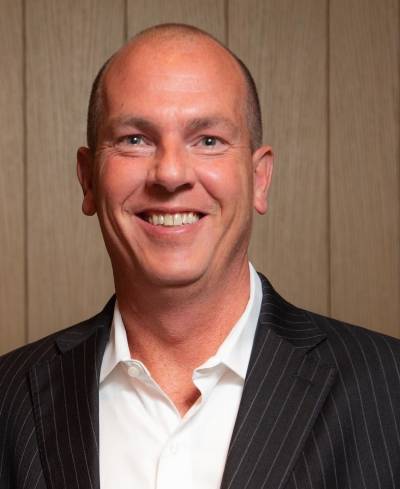From automating recycling processes to modelling complex urban development scenarios, the technology exists to create smarter, more responsive public infrastructure. What remains is a political and cultural challenge, says VertiGIS CEO, Andy Berry.

“Technology is not the barrier anymore. The solution is available, but there’s no commitment to actually transform the way these systems work,” Berry told Think Digital Partners.
VertiGIS specialises in digitising complex infrastructure networks for local governments and utilities. The company rebuilds traditional applications into cloud-based solutions powered by AI, enabling greater levels of automation and efficiency. The technology can model complex infrastructure scenarios, predict maintenance needs, and optimise resource allocation across entire networks, reducing processes that traditionally take weeks to hours.
Its latest solution, VertiGIS Neo, enables users to generate intelligent workflows from simple text prompts and can automate the digitisation of paper forms into digital records.
“We can help design new neighbourhoods, automatically model utility infrastructure, and simulate long-term network impacts. From water networks to electrical grids, we’re putting powerful digital tools directly into the hands of field workers and administrators,” said Berry (pictured).
“We have the solutions. We can provide the technology. But we need government initiatives that look beyond short-term political cycles and commit to genuine, long-term infrastructure transformation.”
Shareholders profit while infrastructure decays
Comparing international approaches, Berry highlights how countries like Germany have completely digitised land management, while the UK continues to rely on paper maps.
If you liked this content…
“In Germany, architects can log onto a system, understand plot rights, and submit everything digitally. The UK is still trapped in manual, time-consuming processes.”
In Canada, VertiGIS is already implementing an AI system that uses historic crime data to redirect police forces to predicted crime hotspots – a solution Berry said London could use.
But Berry is particularly frustrated with the UK’s utility sector, especially water infrastructure. “There’s tonnes of money available, but it’s not being invested appropriately,” he said. “Shareholders are taking profits while infrastructure decays.”
Globally, VertiGIS serves 5,500 customers, with significant presence in Europe, North America, and emerging markets in the Middle East and Africa. However, the UK remains a challenging market.
“We’re seeing more investment and innovation in countries with less economic resources,” Berry notes. “It’s shocking that nations with significantly fewer financial resources are managing their infrastructure more effectively.”
Looking ahead, VertiGIS is focusing expansion efforts on North America, the Middle East, and parts of Africa. “We’re heavily investing in our Denver office and hiring extensively in Saudi Arabia, UAE, and Qatar,” said Berry.
“We’re ready to deploy in the UK, but we need to see genuine commitment to long-term strategic transformation.”







